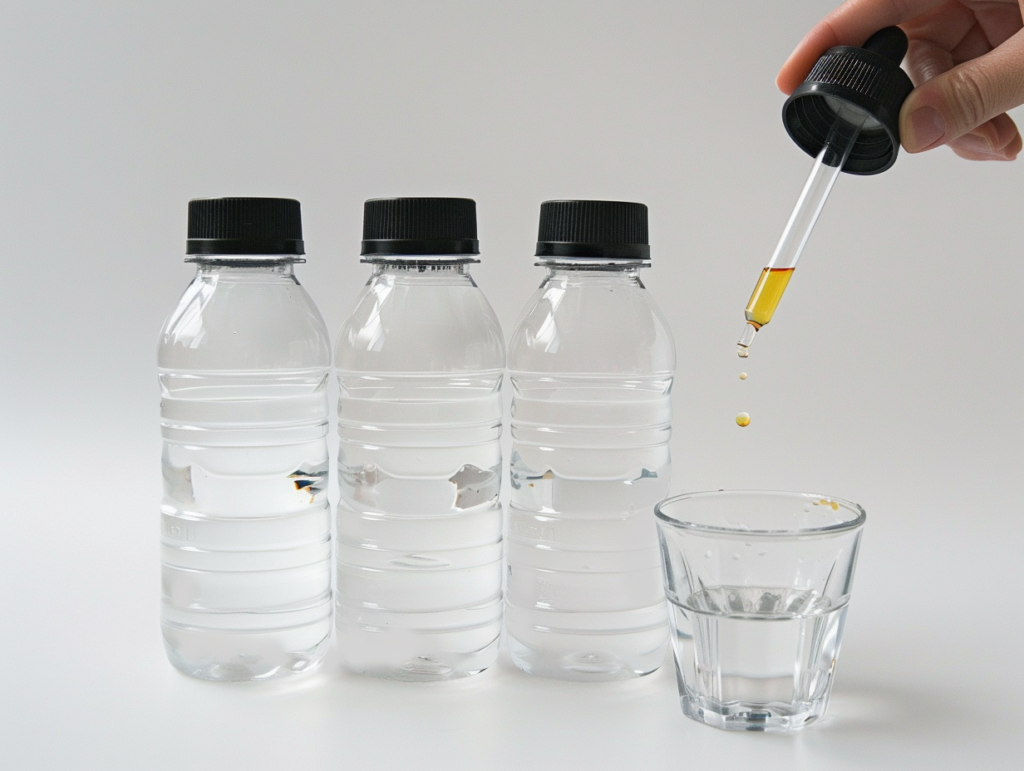Cannabis-infused cooking has gained popularity, with more people experimenting in their kitchens. A critical aspect of this culinary art is understanding the differences between fat-soluble and water-soluble THC. This comprehensive guide will explore various facets of these types of THC, their applications, and how they impact cooking. By the end of this article, you’ll have a solid grasp of how to use both THCs in your recipes.
What are the primary differences between fat-soluble and water-soluble THC in cooking?
When it comes to cooking with THC, the distinction between these forms is crucial. These differences not only influence how THC is absorbed in the body but also affect the preparation and final outcome of your cannabis-infused dishes.
What is Fat-Soluble THC?
Fat-soluble THC, as the name suggests, dissolves in fats and oils. This form of THC is often used in making edibles such as butter, oils, and other fat-based products.
What is Water-Soluble THC?
Water-soluble THC is processed to dissolve in water, making it more versatile for different types of recipes, including beverages and other water-based dishes.
How Does Absorption Differ?
Fat-soluble THC is absorbed through the digestive system and can take longer to take effect, but it provides a longer-lasting experience. Water-soluble THC, on the other hand, is absorbed more quickly, leading to faster onset times.
Cooking Applications
- Fat-Soluble THC: Ideal for baked goods, savory dishes, and any recipe requiring oils or fats.
- Water-Soluble THC: Perfect for beverages, soups, and other liquid-based recipes.
Flavor Profiles
Fat-soluble THC can carry more of the cannabis flavor, which may or may not be desirable depending on the dish. Water-soluble THC often has a less pronounced taste, making it suitable for recipes where you want the cannabis flavor to be subtle.
Dosage Control
Water-soluble THC allows for more precise dosing, which is beneficial for those who require exact measurements for medicinal purposes.
Shelf Life
Fat-soluble THC products typically have a longer shelf life compared to water-soluble THC, which can be more sensitive to environmental factors.
Culinary Creativity
The choice between these THCs opens up various culinary possibilities, allowing chefs to experiment and create diverse dishes.
Health Considerations
Both types of THC have their own health considerations. Fat-soluble THC might not be suitable for those with dietary fat restrictions, while water-soluble THC can be a better option for low-fat diets.

How does the absorption rate of fat-soluble THC compare to water-soluble THC in the body?
The absorption rate of THC in the body is a critical factor in determining the onset and duration of its effects. This section will explore how both THC are absorbed differently and what that means for users.
Fat-Soluble THC Absorption
Fat-soluble THC is absorbed through the digestive system and metabolized by the liver. This process takes longer, typically resulting in a delayed onset of effects, which can range from 30 minutes to 2 hours.
Water-Soluble THC Absorption
Water-soluble THC is absorbed directly into the bloodstream through the mucous membranes in the mouth and stomach. This leads to a much quicker onset, often within 15 to 30 minutes.
Comparison of Onset Times
- Fat-Soluble THC: Slower onset, longer-lasting effects.
- Water-Soluble THC: Faster onset, shorter duration of effects.
Duration of Effects
Fat-soluble THC tends to provide a prolonged experience, lasting up to 6-8 hours. In contrast, the effects of water-soluble THC are typically shorter, lasting around 2-4 hours.
Bioavailability
Bioavailability refers to the amount of THC that enters the bloodstream and can have an active effect. Fat-soluble THC has lower bioavailability due to the first-pass metabolism in the liver, whereas water-soluble THC has higher bioavailability, resulting in more potent effects at lower doses.
Impact on Cooking
The differences in absorption rates can influence how you use THC in your recipes. Fat-soluble THC is better for dishes that you want to have a more prolonged effect, while water-soluble THC is ideal for quicker, more controlled experiences.
User Experience
Understanding these differences helps in managing expectations regarding the timing and intensity of effects. Users looking for a quick onset might prefer water-soluble THC, while those seeking a longer duration might opt for fat-soluble THC.
Dosage Considerations
Given the higher bioavailability of water-soluble THC, lower doses may be needed to achieve the desired effects compared to fat-soluble THC.
Health Implications
For those with certain health conditions or dietary restrictions, the type of THC used can significantly impact their experience and well-being.
What are the benefits of using water-soluble THC in cooking compared to fat-soluble THC?
Water-soluble THC offers several unique benefits that make it an attractive option for cooking. This section will delve into these advantages and how they compare to fat-soluble THC.
Versatility in Recipes
Water-soluble THC can be easily incorporated into a wide range of recipes, from beverages to soups, providing more culinary flexibility.
Rapid Onset of Effects
One of the primary benefits of water-soluble THC is its quick absorption, leading to faster onset times. This is particularly useful for those who need immediate relief or effects.
Enhanced Bioavailability
Water-soluble THC has higher bioavailability, meaning more of the THC is absorbed into the bloodstream, making it more effective at lower doses.
Precise Dosing
Water-soluble THC allows for more accurate dosing, which is crucial for both recreational and medicinal users who need to manage their intake carefully.
Reduced Cannabis Flavor
Since water-soluble THC has a less pronounced cannabis flavor, it can be a better option for recipes where the cannabis taste might be undesirable.
Ease of Use
Water-soluble THC products are often easier to measure and mix into recipes, streamlining the cooking process.
Consistent Effects
The uniform distribution of water-soluble THC in recipes ensures consistent effects, which is beneficial for both culinary professionals and home cooks.
Lower Caloric Content
For those mindful of their caloric intake, water-soluble THC provides a lower-calorie option compared to fat-based THC infusions.
Health Considerations
Water-soluble THC can be a better choice for individuals with dietary restrictions related to fat intake.
Can fat-soluble and water-soluble THC be used interchangeably in recipes?
While both THC have their place in cannabis-infused cooking, they are not always interchangeable. This section will explore when and how you can substitute one for the other in your recipes.
Understanding the Basics
The primary difference between these two THCs lies in their absorption and solubility properties. These differences can significantly impact the outcome of your recipes.
Substituting in Baked Goods
In baked goods, fat-soluble THC is traditionally used due to its compatibility with butter and oils. Substituting with water-soluble THC can be tricky and may require recipe adjustments.
Beverages and Liquid-Based Recipes
Water-soluble THC is ideal for beverages and soups, providing a clear advantage in these recipes. Substituting fat-soluble THC in these cases might not yield the desired results.
Dosage Adjustments
When substituting, it’s crucial to adjust the dosage. Water-soluble THC often requires lower doses due to its higher bioavailability.
Consistency and Texture
Substituting both THC can affect the consistency and texture of your dish, particularly in recipes that rely on the fat content for structure.
Flavor Considerations
The flavor profile can also change with substitution. Fat-soluble THC may impart a stronger cannabis flavor compared to the more subtle taste of water-soluble THC.
Practical Tips
- Experiment with Small Batches: Before making a full substitution, test with small batches to understand the impact on your recipe.
- Adjust Cooking Times: Water-soluble THC might alter cooking times, especially in baked goods.
- Consult Recipes: Look for recipes specifically designed for the type of THC you are using.
Conclusion
Understanding the differences between fat-soluble and water-soluble THC is essential for anyone interested in cannabis-infused cooking. Each type of THC offers unique benefits and challenges, from absorption rates and bioavailability to flavor profiles and health considerations. By mastering these distinctions, you can enhance your culinary creations and tailor your recipes to meet specific needs and preferences.
FAQ
What is the primary difference between fat-soluble and water-soluble THC?
The primary difference lies in their solubility and absorption properties. Fat-soluble THC dissolves in fats and oils, while water-soluble THC dissolves in water, affecting how they are used in cooking and how they are absorbed by the body.
How does the onset time of fat-soluble THC compare to water-soluble THC?
Fat-soluble THC has a slower onset time, typically taking 30 minutes to 2 hours, while water-soluble THC has a quicker onset time, often within 15 to 30 minutes.
Can I use water-soluble THC in baking?
Water-soluble THC can be used in baking, but adjustments to the recipe might be necessary, particularly regarding dosage and consistency.
Which type of THC is better for beverages?
Water-soluble THC is better suited for beverages due to its ability to dissolve in water and provide a quicker onset of effects.
How do the flavor profiles of fat-soluble and water-soluble THC differ?
Fat-soluble THC tends to have a stronger cannabis flavor, while water-soluble THC has a more subtle taste, making it preferable for recipes where a strong cannabis flavor is undesirable.
Are there health benefits to using water-soluble THC over fat-soluble THC?
Water-soluble THC can be a better option for those with dietary restrictions related to fat intake, offering a lower-calorie alternative.
How do I adjust the dosage when substituting fat-soluble THC with water-soluble THC?
When substituting, it’s important to adjust the dosage to account for the higher bioavailability of water-soluble THC. Start with lower doses and adjust as needed to achieve the desired effects.




